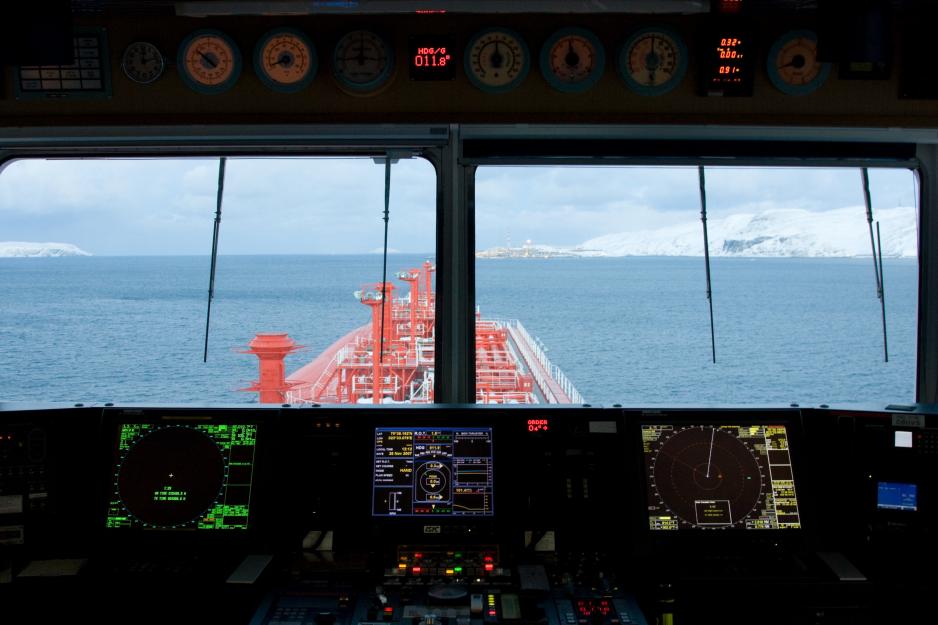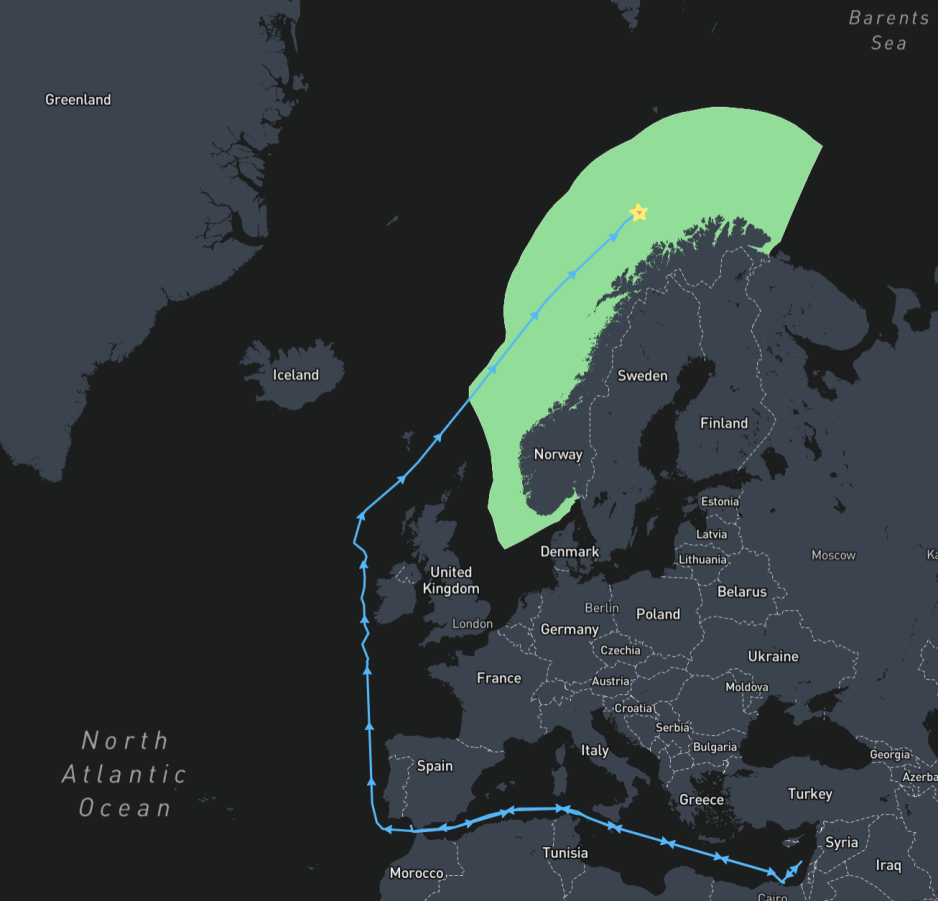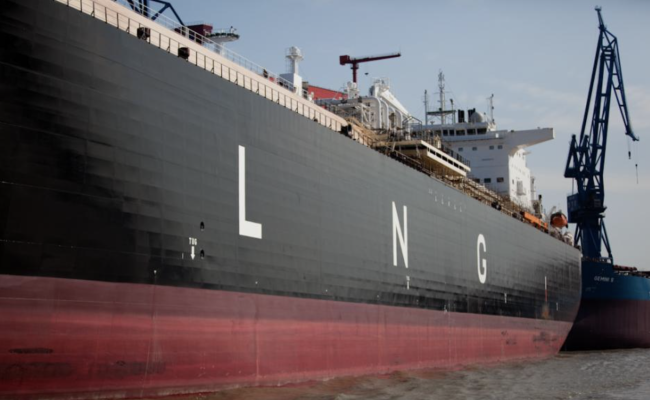‘Shadow Fleet’ LNG Carrier Travels Up Norwegian Coast After Failed Attempt to Deliver Sanctioned Cargo

An LNG carrier sailing up the Norwegian Arctic coastline. (Source: Torbein Rønning)
Six weeks after a sanctioned load of liquefied natural gas traveled down the Norwegian coastline, the same cargo returns to the Arctic after a failed attempt to transit the Suez Canal. Again traveling on an unflagged and uninsured LNG tanker with consequences for marine and environmental safety, experts say.
Two months into Russia’s campaign to establish a ‘shadow fleet’ for its super-chilled natural gas, LNG carriers with suspended registration continue traveling up and down Norway’s coastal waters. At least three vessels with suspended registrations have passed in proximity to Norway's coastal waterways in recent weeks.
The latest example is New Energy returning from a six-week odyssey across the Mediterranean and now back to the Arctic.
Its attempt to transit the Suez Canal with sanctioned gas was foiled when Palau suspended its flag, a move which almost certainly goes hand in hand with a lack of or insufficient maritime insurance, experts confirm.
“The suspension or revocation of a vessel’s flag has serious implications: indeed, being flagless impacts a vessel’s navigation and insurance cover,” explains Enrico Vergani, Head of Shipping, Transport and Logistics at European law firm BonelliErede, in a conversation with HNN.
Under those circumstances a transit across the regulated waterways of the Suez Canal may have been impossible.
Returning to the Arctic via Norway
After staying idle for more than two weeks the vessel began its slow journey back to the Arctic. It passed near the Lofoten over the weekend and has rounded the northern tip of Norway, likely heading to the waters near Murmansk to join other vessels of the shadow fleet that remain in limbo.
New Energy had originally received its cargo from Pioneer in a ship-to-ship transfer in mid-August off Egypt’s coast.

New Energy’s path from the Suez Canal back to the Arctic via Norways’ Exclusive Economic Zone. (Source: Shipatlas)
The Pacific Island state of Palau suspended the registration of five Russian shadow fleet vessels a month ago. Russia may be facing challenges in finding new permanent “homes” for its sanctioned LNG carriers.
“Growing concern has emerged amongst open registries about the risk of being subject to sanctions, leading them to suspend or revoke their flag from several vessels associated with sanction evasion,” confirms Vergani.
The loss of a vessel’s registration carries significant consequences, not only for the vessel’s owner but also for maritime safety.
“It is reasonable to conclude that no insurer – whether P&I or otherwise – would take on the risk of insuring a vessel that is not registered with a proper flag that has laws and regulations it must comply with. When a ship is removed from the registry of its flag state or otherwise loses entitlement to fly the flag of its flag state, it typically loses insurance cover if it does not immediately find an alternative,” Vergani warns.
Shadow fleets escalate risk
The proliferation of Russian shadow fleet vessels, both on the crude oil and LNG side, represents a growing risk to safe maritime operation.
Denmark has been considering options to curtail the flow of crude oil aboard uninsured or underinsured tankers through the Danish straits. Russia sends around one-third of its oil production from ports in the Baltic Sea to the global market via the Danish waterway connecting it to the North Sea.
Following Western sanctions targeting Russia’s oil export the country has increasingly relied on aging oil tankers, to the potential detriment of the environment and maritime safety.
A similar pattern, albeit on a smaller scale with arguably less hazardous cargo, is now emerging on the LNG side of Russia’s shadow fleet efforts; with Norwegian waters having a front row seat.
“Flagless vessels and vessels that use open registries because of sanctions and flag revocations pose challenges for maritime operations. International bodies must address these issues to ensure safety and sustainability, Vergani concludes.



